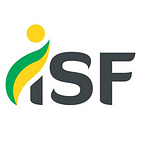Meet ISF’s Technical Team: Rose Souza Richards
This is the third part of our series featuring the people that make up ISF’s Technical Team to hear about their work and priorities. As part of ISF Secretariat based in Switzerland, they are supporting the organization’s Key Strategic Objectives through the development of seed sector policy at the international level and engaging with members all over the world. Read Part 1 here and Part 2 here.
Part 3: Rose Souza Richards, Seed Health Manager
How did you get into seed? Tell us a bit about your background and professional experience.
Rose: My passion for seeds and plant health started early. During my Agronomic Engineering course, I spent time with different farmers around the semi-arid region of Brazil working on cotton, mango and table grapes for export and understanding the role of seeds and plant health. I pursued two Masters of Science degrees, one in Plant Pathology (Universidade Federal de Vicosa, Brazil) and another in Plant Systematics (University of Reading, UK). As a PhD student (University of Nottingham, UK) I studied Potato virus Y quasispecies. Not long after my PhD I moved to South Africa, where worked alongside some amazing researchers in the field of Plant Pathology on grapevines. Later, I went on to work as a Specialist Adviser in the Ministry for Primary Industries (MPI), New Zealand, where I was responsible for the seeds for sowing portfolio, i.e. import phytosanitary requirements. I learned a lot during my time at MPI and increased my knowledge of seeds.
What is your role at ISF?
Rose: I manage ISF’s efforts to promote a harmonized, scientific and technically justified framework for phytosanitary regulations for moving seed efficiently across international borders. Together with ISF’s members, I focus on promoting the implementation of International Standards for Phytosanitary Measures (ISPM) in general and ISPM on the international movement of seeds in particular. I also liaise with the International Plant Protection Convention on behalf of the seed industry. I also work on advancing the Systems Approach, the Regulated Pest List Initiative and the International Seed Health Initiative.
Rose, what are the biggest phytosanitary issues you see right now? What solutions are we seeking?
Rose: Some of the biggest challenges in the phytosanitary arena are: the current consignment-by-consignment phytosanitary certification system; the increasing number of specific pest requirements and its variation between NPPOs, where in most cases there is no evidence that seed is a pathway; lack of phytosanitary measures to address small lots of seeds for research and breeding purposes; lack of full implementation of international standards leading to inconsistency of approach by the NPPOs.
ISF seeks to address these challenges by pushing for the adoption of systems approach for seeds via the work currently undertaken by the systems approach working group. We also continue our advocacy and promotion of the ISF Regulated Pest List Initiative which is a dynamic database of information on regulated pests of internationally traded seed species, based on a scientific assessment of whether they are a pest risk; and the promotion of the International Seed Health Initiative for Vegetable Crops (ISHI-Veg) — an industry platform formed in 1993 under ISF’s support and governance where we develop methods for seed health testing. Further, via outreach activities such as webinars and virtual roundtables we seek to highlight these challenges and advocate that governments work alongside the seed industry to solve some of these issues and others to ensure the global movement of seeds.
As a follow up to that, how do you see seed health and the emergence of new pests and diseases in the coming years?
Rose: New invasive insect pests and diseases can threaten food production especially in developing countries. Climate change also makes it very likely that new pests will emerge and put global food production at risk. Although not linked to seeds, Africa and now Asia are struggling to cope with fall armyworm, a pest indigenous to the Americas that has been proven close to impossible to eradicate. Therefore, healthy seeds, free from known seed-transmitted pathogens, are a prerequisite for sustainable food production.
Seed health is a very important topic for the seed industry. Quality seed is an expectation from growers. So, it is important to highlight that seeds are the foundation for crop production and seed health is related to food production in many ways. Keeping seeds, and consequently plants, healthy is crucial to ensure sustainable agriculture and food systems, as well as to protect the environment and ecosystems.#
